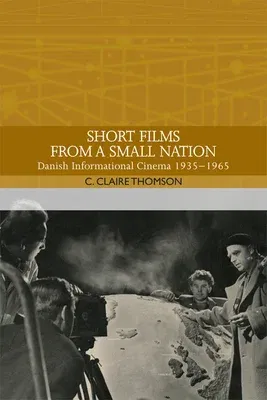C Claire Thomson
(Author)Short Films from a Small Nation: Danish Informational Cinema 1935-1965Paperback, 7 August 2019

Qty
1
Turbo
Ships in 2 - 3 days
In Stock
Free Delivery
Cash on Delivery
15 Days
Free Returns
Secure Checkout

Part of Series
Traditions in World Cinema
Print Length
240 pages
Language
English
Publisher
Edinburgh University Press
Date Published
7 Aug 2019
ISBN-10
1474452272
ISBN-13
9781474452274
Description
Product Details
Author:
Book Format:
Paperback
Country of Origin:
US
Date Published:
7 August 2019
Dimensions:
22.86 x
15.24 x
1.02 cm
Genre:
Scandinavian
ISBN-10:
1474452272
ISBN-13:
9781474452274
Language:
English
Pages:
240
Publisher:
Series:
Weight:
249.48 gm